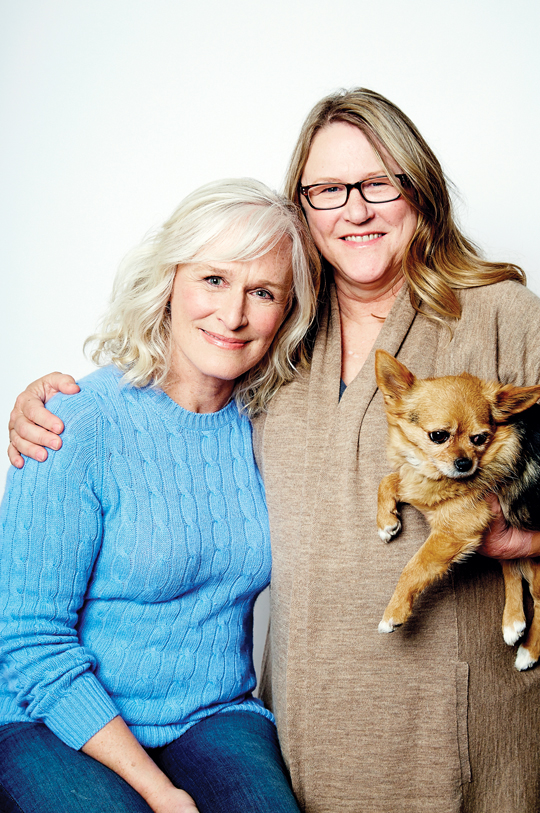PORT ANGELES — Eliminating the stigma against those suffering from mental illness is a major goal for Jessie Close, sister of Academy Award nominee Glenn Close.
Mental illness “is greatly misunderstood and vilified,” Jessie Close said over the phone last week.
“Mental illness is just like any other disease, and we need to really accept the people who live with it. I am one of them, and my son is one of them.”
Jessie Close, who has been diagnosed for bipolar disorder, will be in Port Angeles on Friday to share the story of her struggle with mental illness and speak about how she was able to make it through the darkest times with the support she received from her family.
She will be the keynote speaker at the Peninsula Behavioral Health Annual Dinner, set from 5 p.m. to 6 p.m. at the Red Lion Hotel, 221 N. Lincoln St.
Tickets are $95 and include a filet mignon dinner.
Peninsula Behavioral Health, based in Port Angeles, is the largest nonprofit organization in Clallam County, said Rebekah Miller, Peninsula Behavioral Health development coordinator.
It serves primarily low-income residents through a variety of programs.
“Last year our staff of 100 provided care to over 3,000 patients,” Miller said.
“Although our budget largely consists of state and federal reimbursements, this sole income stream does not meet the growing needs of our community, and we are being hit particularly hard this year with out-of-the-area hospital expenses,” Miller added.
“We’re raising money for indigent clients who don’t have insurance or can’t afford copays,” Miller said.
Jessie Close lived for 25 years with mental illness before being diagnosed with bipolar disorder at age 45, she said, adding she finally sought help because of relentless migraine headaches.
Her psychiatrist prescribed Tegretol and Celexa, she said.
Tegretol caused a mild case of Stevens-Johnson syndrome, a rare and serious skin condition, Jessie Close said, and she stopped taking it.
Without anything to counteract Celexa, an antidepressant, Jessie said she experienced episode after episode of mania — occasions marked by periods of great excitement, euphoria, delusions and overactivity.
“When I was manic, I enjoyed being manic for the first little while and then it got to be too much,” she said.
Jessie said she began self-medicating with alcohol, but that only led to thoughts of suicide.
She joined Alcoholics Anonymous in 2001 and has been sober ever since, she said.
But without proper medication, Jessie continued to have thoughts of suicide.
“Suicide is to mental illness what a tumor is to cancer,” she said. “It is very common, unfortunately.”
During this time, Jessie said she nearly pulled the trigger while living in Montana.
It was the thought of her children, she added, that prevented her from going through with shooting herself.
“I couldn’t bear the thought of them finding me with my head blown off, and I didn’t want them to suffer through that kind of memory,” she said.
“My son had just come home from the hospital, and it was almost as if somebody had tapped my shoulder and said, ‘wait a minute. Look at what you are going to do. Look at how you are going to destroy these children.’
“That kept me from doing it.”
Her doctors eventually were able to find the right mixture of medications needed to stabilize her mood, she said.
That allowed her to become “a contributing person to society.
“I am a grandma and I am able to help my daughter out with her daughter and I can live my life to the fullest now.”
Proper diagnosis and treatment can help people with bipolar disorder and other mental illnesses lead healthy and productive lives, Jessie Close said.
“I am a walking example. It helps me enormously. I can sleep at night and I am fully functional during the day and it is pretty awesome.”
Jessie Close said she stays on the medications because “I never want to ever experience a depression again. The depression is just so horrible. I am very fortunate that I didn’t take my life.”
She encourages those suffering from mental illness, or those closest to them, to seek medical attention “even if their family members don’t want to hear about it,” she said.
“They can seek out help. It would be better if the family could help.
“I am always saddened by hearing about someone who is suffering from a mental illness and they don’t have support from their families.”
Jessie Close in early 2015 released a book chronicling her struggles, and the support she has received over the years from Glenn.
The book, Resilience: Two Sisters and a Story of Mental Illness, explores her childhood — including the years her family spent with the Moral Re-Armament cult in Africa — and the years she spent trying to overcome her illness.
For more information about Peninsula Behavioral Health, visit peninsulabehavioral.org.
To buy tickets to the fundraiser, go to http://tinyurl.com/PDN-CloseFundraiser or call 360-457-0431.
________
Reporter Chris McDaniel can be reached at 360-452-2345, ext. 56650, or cmcdaniel@peninsuladailynews.com.

